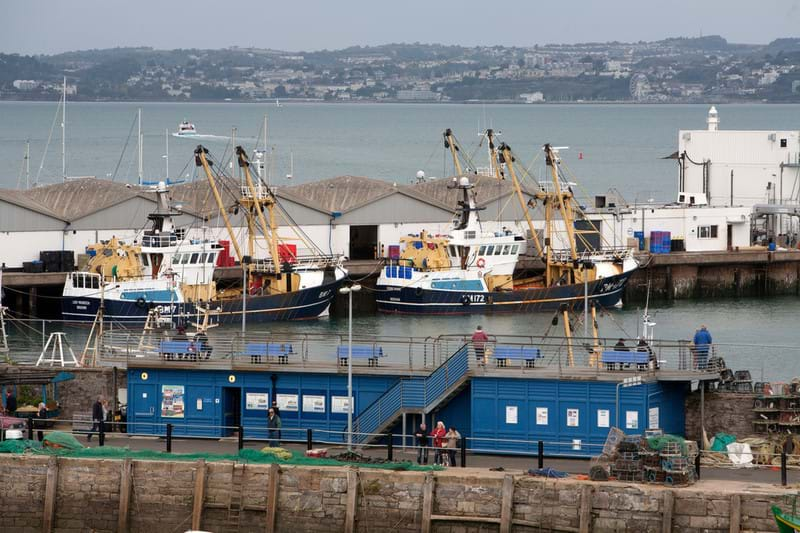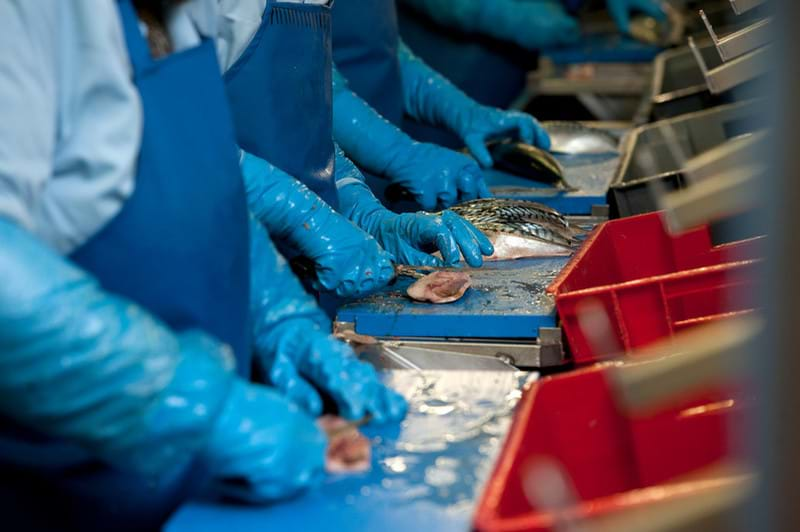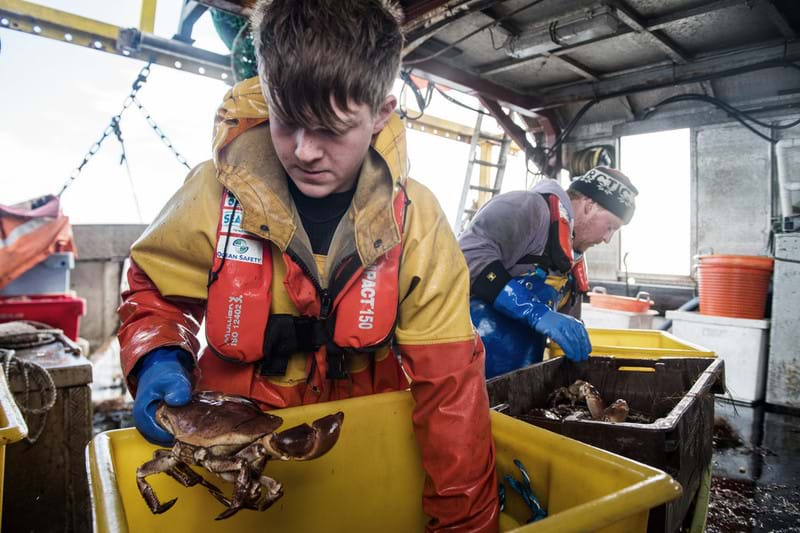How young leaders are shaping the future of England’s seafood industry
The Young Seafood Leaders Network (YSLN) was set up by Seafish to connect talented young professionals from across the UK seafood industry. The network gives members the chance to share knowledge and ideas, develop leadership skills and gives us a voice in the seafood industry.
One of those opportunities where we have been given a voice to influence change is through Seafood 2040 and its Seafood Industry Leadership Group (SILG).
What is Seafood 2040?
In October 2015, a Task Force representing all sectors of the seafood industry in England was established at the request of George Eustice MP, Minister of State for Agriculture, Fisheries and Food. The Task Force was asked to explore the challenges and opportunities facing the English industry and to shape a long-term ambition that could realise the full potential of the industry by 2040. Over the course of 15 months, the group came together regularly, evolving their thoughts and ideas into a strategic framework: Seafood 2040 (also known as SF2040).

The Strategic Framework’s primary objective is to identify how the industry can increase seafood consumption in England, in line with the two portions a week recommended by NHS guidelines. Underpinning this primary objective, are four secondary objectives relating to:
- sustainable fisheries;
- aquaculture operations;
- business development;
- export support.
To deliver these objectives, 19 recommendations have been agreed to support the English seafood industry towards a truly thriving and sustainable future.
Learn more about Seafood 2040 and of the Strategic Framework by following the links below.
What is your role as a YSLN member?
The Seafood 2040 chair kindly invited the YSLN to have a seat on the Seafood Industry Leadership Group (SILG). This role was taken on by Sarah Hussey, whom did a fantastic job before passing it onto myself when she took maternity leave.
What does the Seafood Industry Leadership Group (SILG) do?
The aim of SILG is to represent all English seafood sectors by leading and supporting the work of the Seafood 2040 Strategic Framework for England. It holds all partners to account for its delivery and provides a genuine and holistic view of the English seafood industry. The members of the group include representatives from:
- government;
- aquaculture;
- food service;
- academia;
- processing;
- and the fishing sector.

The SILG also works alongside the Aquaculture Leadership Group (ALG) which is specifically focused on championing aquaculture recommendations and delivering the English Aquaculture Strategy.
What do we discuss?
A normal meeting consists of several updates, including those from Defra, Seafish and the Seafood 2040 secretariat. This is followed by specific sessions on work in the strategic framework. In the lead up to September 2021, the meetings focused on refreshing the strategic framework recommendations. This helped streamline the original 25 recommendations down to 19 more direct actions. This removes duplication and combined recommendations where work had been completed.
In what way are the voices of young seafood leaders acknowledged on the SILG?
I think the SILG is a fantastic forum as it gives all the participants equal opportunity to voice opinions and shape the framework in areas that will influence many of our careers. An area that I was especially keen to see built on, as a representative of the YSLN, was Recommendation 14. This recommendation centres around training and skill plans. It is fundamental to the development of young seafood leaders, but also to the industry’s ability to attract talent and bring the next generation into the industry. It was great to see specific text added to the recommendation that focused on plans to support work-based learning for those aged 16 and above. Overall, I think the ability for the YSLN to input into this group and the strategic framework is a fantastic opportunity.

What role do you see young leaders having in addressing the challenges facing the future of England’s seafood industry?
Over the next 15 to 20 years, I think young leaders have an extremely important role in delivering a thriving and sustainable seafood sector.
We have a strong environmental and social awareness so must be the conscious voice of the industry if we are to tackle some of the biggest challenges we face.
From the impacts of climate change to improving diversity and inclusion, we are well placed to shape the sector for the better and continue to deliver a tasty, nutritious protein long into the future.
Further information
Visit our Young Seafood Leaders Network webpage for further information.